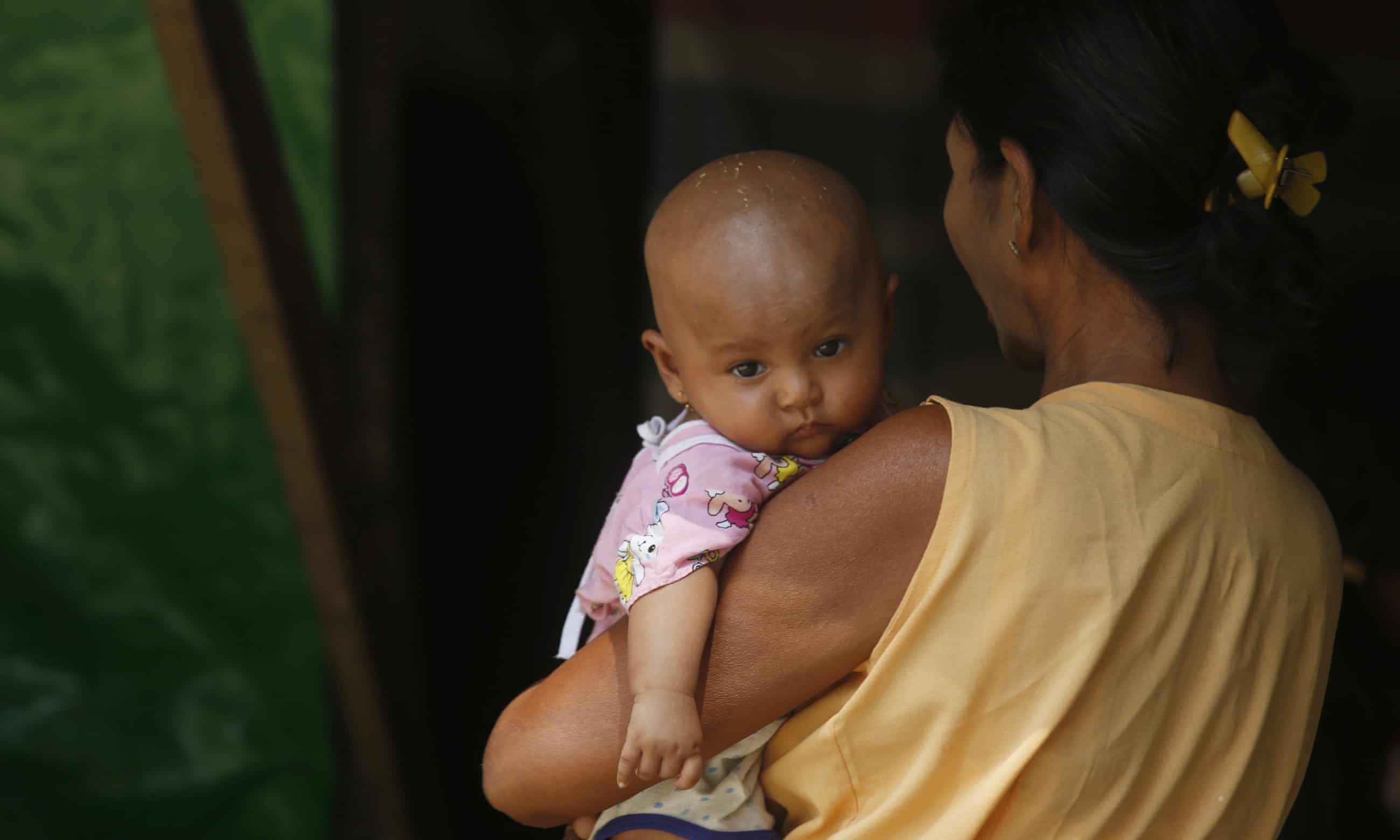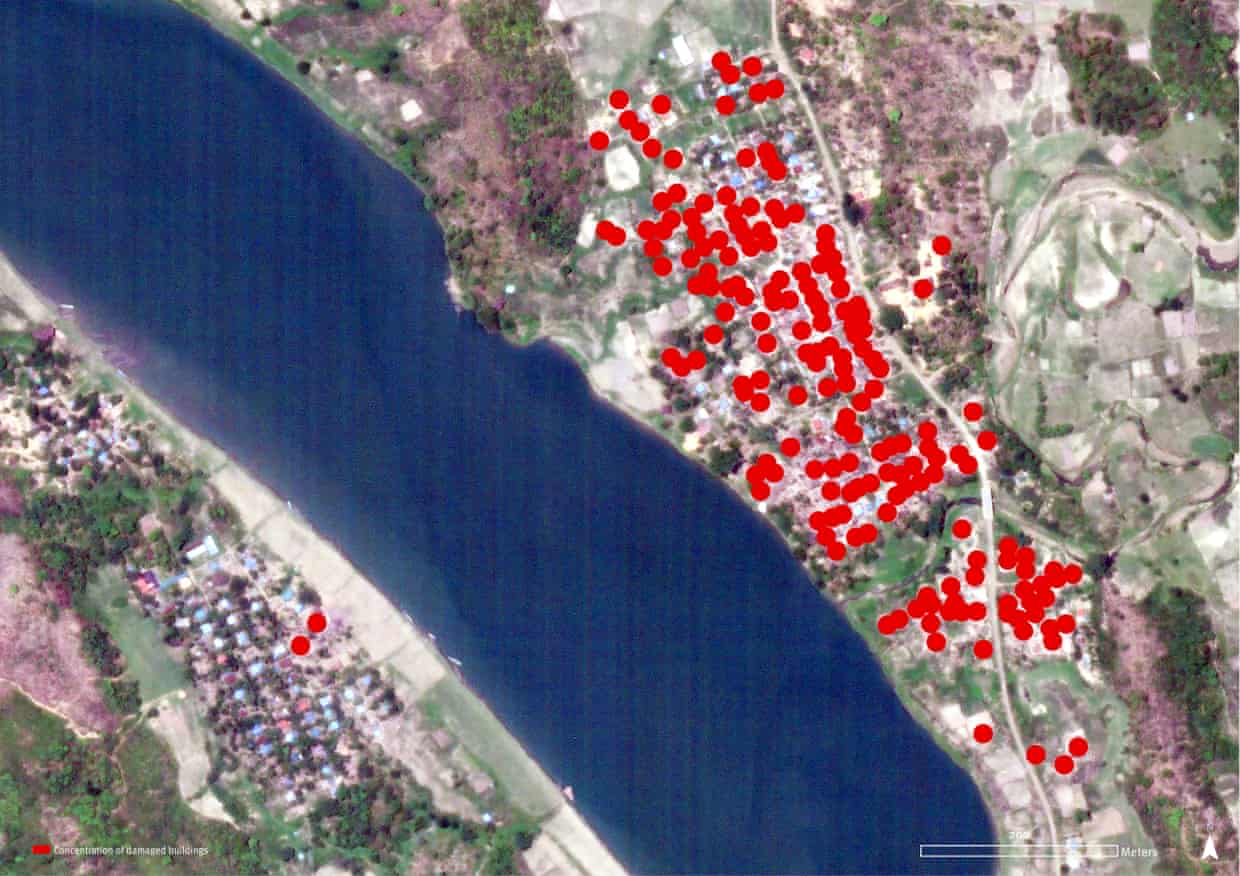
Myanmar
Myanmar army accused of new atrocities in attack on Rakhine village
Less than three years since a crackdown against Rohingya, troops are again accused of war crimes – this time against Rakhine Buddhists
by Rebecca Ratcliffe, Emanuel StoakesKyaw Thu* waited until night fell before taking his family to the bank of a river not far from their village. While millions across the world were told to remain at home to stay safe from the coronavirus pandemic, he and his neighbours were forced to flee.
That night in March, he recalls, residents from Tin Ma village, in Rakhine state, clambered anxiously into boats, crossed the river, then trekked through foothills to seek refuge in the relative safety of a nearby town. No one switched on a torch or even lit a cigarette for fear of drawing the attention of Myanmar’s army.
It is less than three years since the Myanmar military’s violent crackdown on Rohingya Muslim communities in Rakhine state, a campaign of violence that has since led to a genocide case in the UN’s highest court.
Now the army is once again accused of committing war crimes against its own people. The tactics are familiar, but the primary targets this time are Rakhine Buddhists such as Kyaw Thu, as well as Rohingya, Mro, Daignet and Chin communities.
Despite sharing a faith with Myanmar’s rulers, Rakhine Buddhists have long complained of persecution, and say the development of their state has been stifled by the central government. Repression has now, they say, escalated into violent atrocities.
For more than a year, a long-simmering conflict has escalated between the military and the Arakan army, a rebel group drawn from Rakhine state’s Buddhist majority, that says it is fighting for greater autonomy.
Yanghee Lee, who recently stood down as the UN’s special rapporteur on human rights in Myanmar, said the military is increasingly targeting civilians, using tactics reminiscent of the 2017 assault against Rohingya that caused global outrage: homes have been burned, civilians detained and disappeared.
“I think the international community should be really scared of what might happen,” said Lee, who urged the UN and its member states to act.
Seven residents from Tin Ma - one of the villages allegedly targeted - told the Guardian the Myanmar army entered their village in February and March. Soldiers harassed locals and fired indiscriminately, according to the residents. Ostensibly they were seeking rebel fighters.
A mother said the soldiers would interrogate residents about whether they had seen the Arakan army: “I said: ‘No, I have never seen the Arakan army’, and they would say, ‘Where is your husband?’”
The troops would return several times, going door-to-door, demanding that families hand over anything they owned - from solar panels and batteries to chickens. Later, they say, homes were torched.
Whenever the army came to the village, the mother would grab her son and take him to a hidden shelter to escape harassment or firing.
“He cried, and I was afraid his cries would be heard by the soldiers,” she said. On one occasion, the village was also hit in an aerial attack.
On 16 March, according to multiple testimonies, soldiers began rounding up dozens of men. Aung Lay*, a resident, said he was tied, blindfolded and told that if he attempted to escape, he would be shot. When he was released he went to hide in the bushes, only to discover the body of another man who had been detained.
Kyaw Thu said he lay almost entirely submerged in a river for hours as the roundups were happening, along with dozens of people who feared they would be taken. “[Our] lips went black, we were trembling in the water. It was like hell,” he said. He left the village the following day. Up to 10 people remain missing.
After the residents fled, homes were allegedly torched. Two residents who returned to watch over the village said they witnessed soldiers deliberately burning homes on 22 and 23 March.
Villagers who spoke to the Guardian did so on the condition of anonymity. It is not possible to verify their accounts: there is a virtual ban on foreign media in Rakhine state, local journalists face harassment, and the internet has been blocked in some areas for almost a year, hampering the documentation of abuses.
However, satellite imagery provided by Planet Labs Inc and analysed by Human Rights Watch confirms about 140 buildings were affected by fire in Tin Ma, probably on the dates described.
Further analysis confirms about 180 buildings were affected by fire in another village, Pyaing Taing, also in Kyauktaw township, also likely in March.

The Guardian is aware of 19 other reports where civilian homes in Rakhine and Chin states were apparently damaged by fighter jets or artillery or burned since January.
Responding to allegations relating to Tin Ma, Brig Gen Zaw Min Tun said he was aware homes had been burned but did not comment on who was responsible. The military has previously denied the reports, and said in April that security forces inspected Tin Ma and found it to be intact.
Zaw Min Tun said some allegations against the military were being made by “so-called villagers who are members of Arakan army”. However, he said claims would be investigated and dealt with through the justice system.
“In the armed conflict areas, Tatmadaw [the military] is very careful to follow the rules of engagement,” he said, but added that it was hard to differentiate between insurgents and villagers. “They are living in the village and coming out of there for the attack then go back to the village.”

The Myanmar government has recently declared the Arakan army a terrorist group, a development that has further stifled the flow of information from the region, as it means journalists are now being targeted with legal charges just for quoting its representatives.
The Arakan army has also been accused of abuses, including kidnapping local officials.
Tha Lun Zaung Htet, the editor-in-chief of the Khit Thit news agency is among several senior journalists forced into hiding. His home was raided at night on 31 March.
“My son, a three-year-old boy, cried all the time when he saw a group of people with hardest faces at midnight. My son was so frightened,” he said, speaking through an intermediary for security reasons. “They watch my home and follow my wife all the time.”
He added that despite the threats, he would continue his journalism.
A UK government-funded analysis seen by the Guardian predicts an expansion of the conflict “in intensity and geographic scope” that would produce long-term food insecurity. Displacement and “abuses of all civilians” would also increase.
The Myanmar government was not reachable for comment, but a spokesman has previously rejected recent allegations of war crimes. He accused outgoing UN envoy Lee of bias, and blamed rebels for violence.
Aung San Suu Kyi, Myanmar’s civilian leader, has not commented on the claims but, in a statement in April, paid tribute to members of the military who she said had “discharged their duties with courage and dedication, and sacrificed their lives” to defend civilians from the Arakan army. She accused the group of “destructive activities” and said casualties and their families would be given support.
Myanmar has seemed immune to international pressure over its treatment of the Rohingya; despite pledges to improve conditions, the group’s experiences are virtually unchanged. The Rohingya are still subject to vast restrictions on their basic rights.
People from Tin Ma want the atrocities inflicted on their village to also be placed under the global spotlight. They urged the international community to visit and witness what was happening.
They are now exiled to makeshift camps in Kyauktaw town, sleeping on the floors of schools and monasteries. It is stiflingly hot, cramped and noisy. With no internet, there are few ways to access information about coronavirus. “We have been driven out of the world,” said Moe Naing*.
* Names have been changed